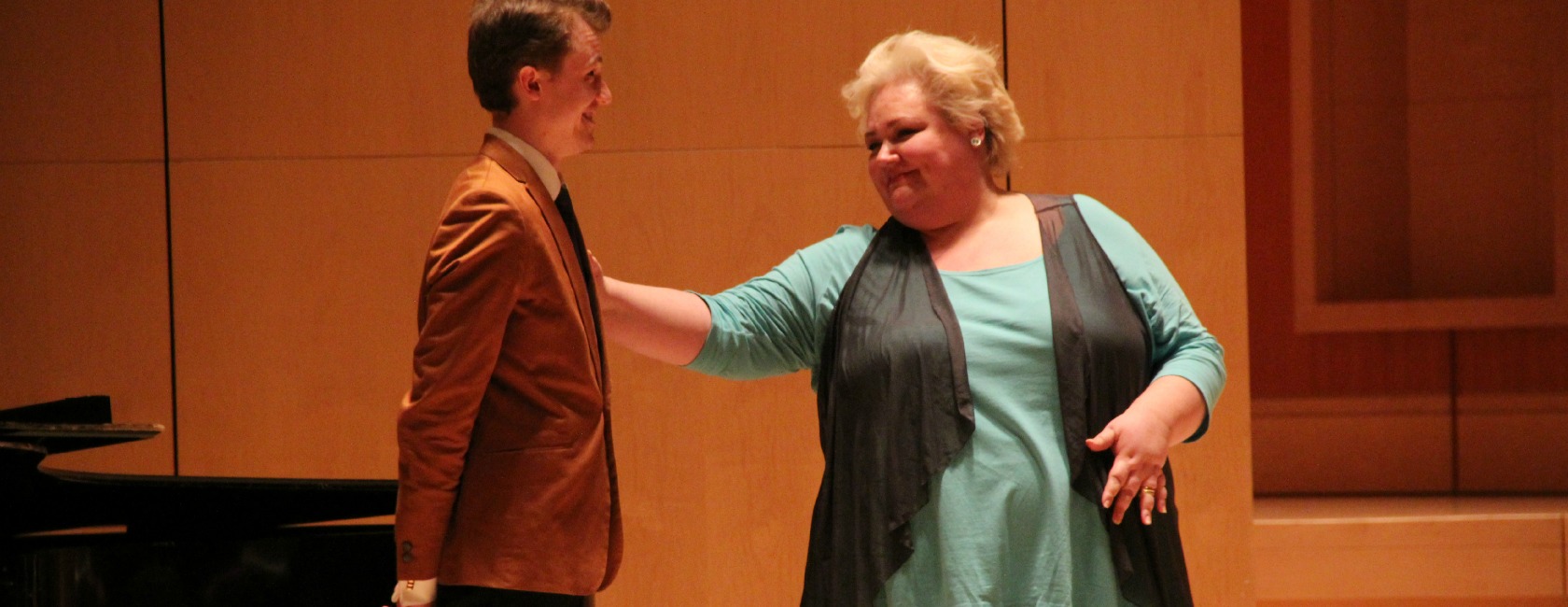International Star Imparts Wisdom to Operatic Lutes

Image: Opera star Stephanie Blythe works with student Eric Olson ’15 during a master class at PLU. (Photo: Matthew Salzano ’18)
By Matthew Salzano ’18
PLU Marketing & Communications
TACOMA, WASH. (March 2, 2015)—Internationally known mezzo-soprano Stephanie Blythe gave more than just singing lessons to five lucky Lutes.
When Blythe visited campus on Feb. 23 to deliver a master class, she held nothing back: If something was wrong with a student performer’s shoes, posture, grammar, pacing or pitch—she called it.
Blythe is recognized as one of the best in her generation. She has visited the Metropolitan Opera in New York and the San Francisco Opera and is performing in Semele with the Seattle Opera through March 7.
Vocal Studies professor James L. Brown told PLU’s The Mast that Blythe “is an advocate for opera and a champion of the whole gambit of vocal music.”
Fifty Lutes applied to perform for Blythe, but only five earned the honor: Miya Higashiyama ’17, Sarah-lynn Bennett ’15, Eric Olson ’15, Lauren Searls ’16 and Annie Herzog ’15. Each sang one song, in English, of his or her choosing and remained onstage for about 30 minutes, working with Blythe to improve technique.
Blythe did not limit her definition of technique to the basics of performance, however—far from it. Blythe certainly covered the expected of an opera master class: tempo, pitch, quarter-vs.-eighth notes and so on. She also gave valuable lessons about the philosophy of singing.
But Blythe also constantly lectured about being a vessel. She said singing means being in a constant state of giving—singers exist to deliver the message of a song and the meaning infused in it by its composer.
This was the motive behind all of her coaching.
When telling Herzog to make eye contact with her audience, not a point on the wall, she said, “If you don’t look into your audience, they don’t see your soul.”
After focusing on tempo for most of Bennett’s time, Blythe pointed to her heart and said, “All tempo comes from here.”
This message certainly did not go unheard by the evening’s selected performers.
“I think some of the biggest things I took away from this experience would be that being a singer is not just standing up in a group of people and singing some notes and rhythms.” Higashiyama said. “We [as singers] are a vessel to the audience. We want to make them feel something because, despite the fact we are singing, it is not about us.”


